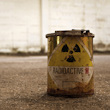
This article originally appeared on LinkedIn.
In the suburb where I live, people regularly demolish 4,000-square-foot homes just because they’re a little outdated, clearing the way for new 8,000-square-foot estates. Everything goes into the dumpster—all the flooring, drywall, window, carpets, fixtures and even the kitchen sink! Our local landfill is full of discarded houses.
Of course, these same folks religiously separate their paper and plastic trash each week, in the name of saving the planet. I’m all in favor of recycling, but in this case, their commitment to environmentally responsible and sustainable practices seems superficial at best.
In the corporate world, there’s a similar pattern. Companies love to use buzzwords like "stewardship" and "sustainability" in their public relations campaigns. But inside their walls, many treat their most precious assets as disposable: people.
These companies act like they're entitled to customers. They ignore what is in the best interests of their clients, deliver uninspired service and make customers jump through hoops to get their complaints resolved. These companies treat their employees as though they’re lucky to have their jobs. They issue one-size-fits-all dictums from corporate headquarters and rarely take workers’ input seriously.
Maybe it’s time to rethink corporate responsibility and return to the fundamental idea that companies are responsible for the lives of the investors, employees and customers that they touch. Do the company's actions enrich those lives or diminish them? The Net Promoter System® makes it possible to measure this important trait. People whose lives have been enriched tend to become promoters. Those whose lives have been diminished typically become detractors.
Let's put aside the corporate carbon footprint for a moment and consider what the scores imply about the human footprint created by the average company today. Many companies today are turning far less than half of their customers and employees into promoters. This enormous failure rate tells me that companies should feel good about any kind of stewardship. And if they considered the toxic effect those detractors have on their colleagues and customers—and the reputation of these corporations and their leaders—they would realize they are nowhere near achieving true sustainability.
Net Promoter®, Net Promoter System®, Net Promoter Score® and NPS® are registered trademarks of Bain & Company, Inc., Fred Reichheld and Satmetrix Systems, Inc.

